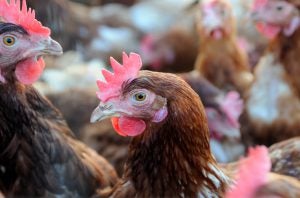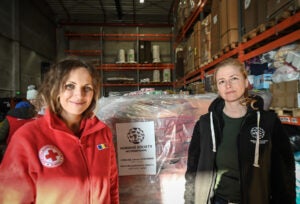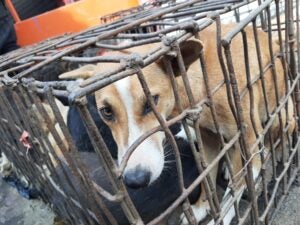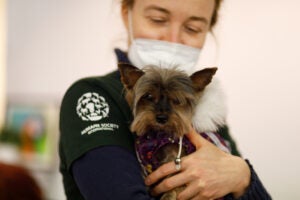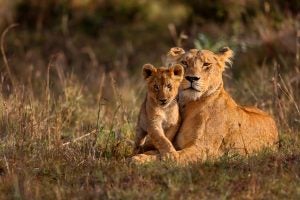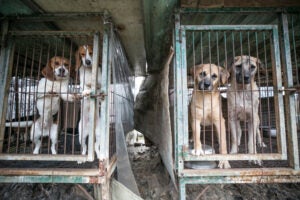
SEOUL—The South Korean government taskforce deliberating a ban on the country’s dog meat industry has announced a delay of two months in publishing its recommendations. Humane Society International/Korea, which has rescued more than 2,500 dogs from South Korea’s dog meat industry, says opinion polls show public support for ending the industry, with nearly 84% of South Koreans not eating dog, and almost 60% favoring a ban.
Lola Webber, Humane Society International’s End Dog Meat campaign director, says: “With more than one million dogs a year needlessly suffering for a meat that hardly anyone eats, and with so many dog farmers struggling to make a living in light of dwindling consumer demand, we hope that the taskforce will deliver a bold plan to close this miserable chapter in South Korea’s history. As a candidate, President-elect Yoon Seok-yeol pledged support for ending dog meat provided there is social consensus, and opinion polls show we’ve reached a tipping point in public opinion, so we hope to see that momentum for change reflected when the taskforce makes its recommendations.”
The taskforce was established last year to assess social consensus after President Moon Jae-in suggested the time is right to consider a ban. President-elect Yoon has three cats and four dogs, including Tori the rescued Jindo, a breed typically found on dog meat farms.
Since 2015, HSI/Korea’s Models for Change program has helped dog farmers in South Korea transition to new, more humane and profitable livelihoods such as chili plant and parsley growing or water truck delivery. Most of the farmers involved experience mounting societal, family and financial pressure to get out of farming dogs. With growing concern for animal welfare, and over six million pet dogs now living in Korean homes, demand for dog meat has dwindled. HSI/Korea has permanently closed 17 dog meat farms and rescued more than 2,500 dogs who find adoptive homes in the United States, Canada and the United Kingdom with a small number rehomed in South Korea.
Dog meat facts:
- Although most people in South Korea don’t eat dog, the belief that dog meat soup will cool the body and build stamina during the hot summer, particularly during Bok Nal season across July and August, still holds with some, especially the older generation.
- Most dogs slaughtered for meat in South Korea are killed by electrocution although some are also hanged.
- Dog meat is banned (with varying degrees of enforcement) in Hong Kong, Taiwan, the Philippines, India, Thailand and Singapore, as well as the cities of Shenzhen and Zhuhai in mainland China and Siem Reap province in Cambodia. In Indonesia, 14 cities, regions or regencies have banned dog meat: Karanganyar, Sukohrajo, Salatiga city, Malang, Semarang city, Semarang Regency, Blora Regency, Brebes Regency, Purbalingga Regency, Magelang city, Jepara, Blitar city, Mojokerto city and Mojokerto Regency. Despite these growing bans, an estimated 30 million dogs a year are still killed for meat across Asia.
Download photos/video of HSI/Korea’s dog meat farm closure program in action.
ENDS
Media contact: Wendy Higgins, director international media: whiggins@hsi.org


